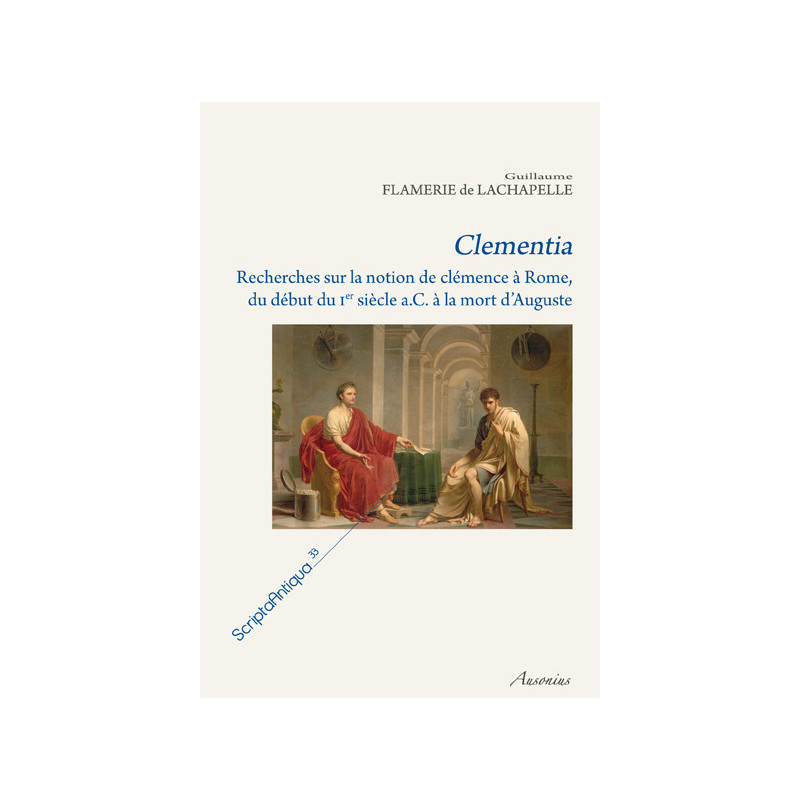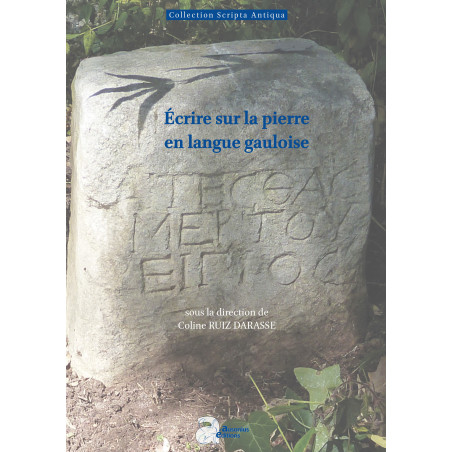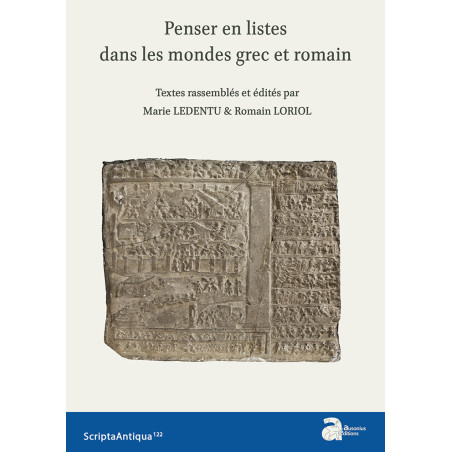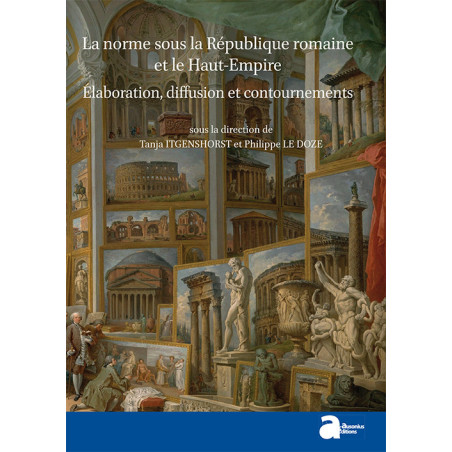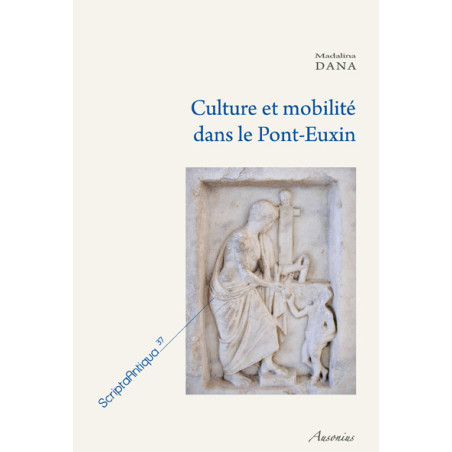Scripta Antiqua 33
Clementia : recherches sur la notion de clémence à Rome, du début du Ier siècle a.C. à la mort d'Auguste
The modern world often represents the history of Rome as a succession of massacres and murders. It is quite a different face of Rome, less spectacular but just as important, that is treated in this work, which is devoted to the study of clemency.
The forgiveness granted to Brutus by Caesar and to Cinna by Augustus may have gone down in history as exceptional acts, but they are not isolated events. Clemency occupies a consistent position in Roman moral thought. Initially the privilege of a nation as a whole, it gradually becomes identified with the power of a single individual. This trend peaks with the rule of Julius Caesar. Augustus, who learns from the unfortunate example of his predecessor, strives to elaborate a new conception of clemency, one which finds an echo in several major literary works of his time.
Source of patriotic pride, virtue of the wise, essential quality of the ideal statesman or pure whim of the despot, clemency presents several features which both overlap and contrast with one another. By placing them in a precise historic, legal, philosophic and literary frame, this book intends to reveal the complexity of a notion which demands a many-sided approach, but whose real flexibility must not be mistaken for incoherence.
On the same subject
Scripta Antiqua 122
Penser en listes dans les mondes grec et romain
Publication date :01/06/2020
Scripta Antiqua 96
La norme sous la République et le Haut-Empire romains. Élaboration, diffusion et contournements
Publication date :31/03/2017
Scripta Antiqua 37
Culture et mobilité dans le Pont-Euxin : approche régionale de la vie culturelle des cités grecques
Publication date :01/01/2011
